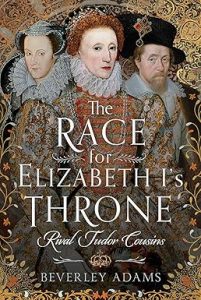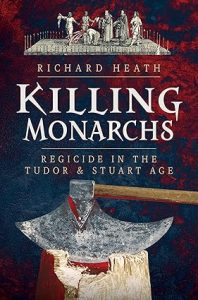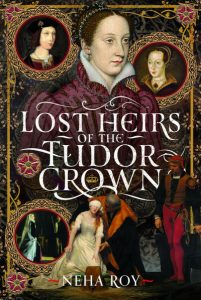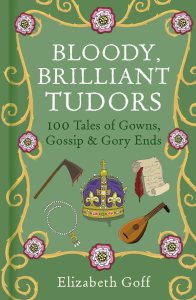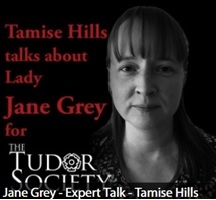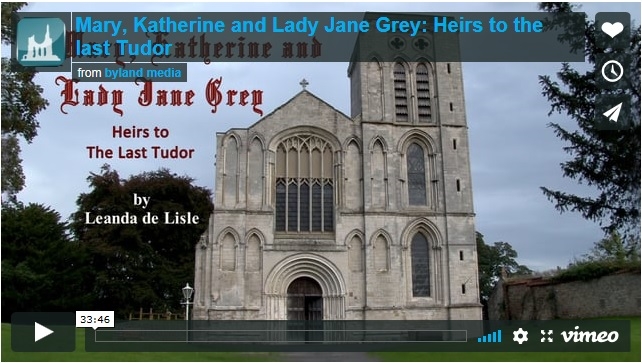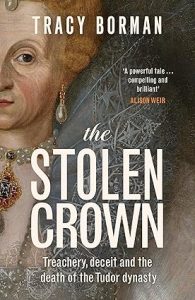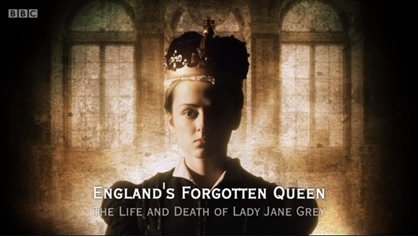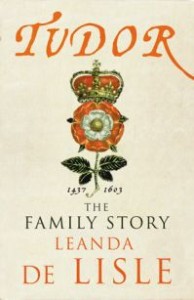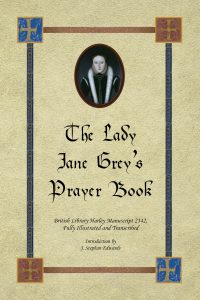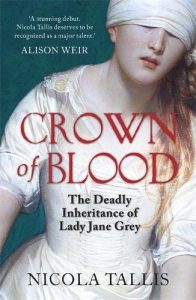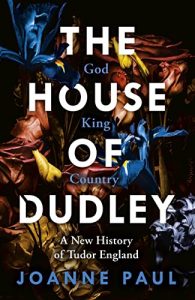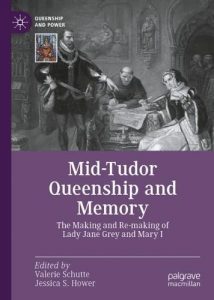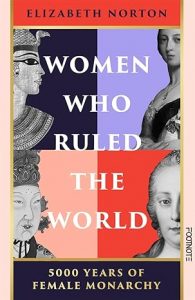Elizabeth Fremantle is the author of the Tudor Trilogy, ‘Queen’s Gambit, Sisters of Treason and Watch the Lady.’
‘Watch the Lady’ is published in the UK on 18th June and is available to buy now in the USA.
To buy her new novel in the UK:
To buy in the USA:
Follow Elizabeth Fremantle on Social Media:
Elizabeth’s website: www.elizabethfremantle.com
Twitter: @lizfremantle
Facebook: Elizabeth Fremantle
Many thanks to Elizabeth for answering my questions.
How does this book link with the others in your Tudor trilogy(Queen’s Gambit and Sisters of Treason)?
WATCH THE LADY takes us to the end of Elizabeth I’s reign, so the three books chart the unprecedented half-century of female rule in England. It continues the theme of women and power and so, though all three books stand alone and the focus is on different protagonists in each, they also work as a single narrative charting English court politics in the wake of the Reformation, through the eyes of five very different women.
Why did you decide to have Penelope Devereux as your main character?
Penelope is an intriguing figure, a dangerous figure and a maverick, a court beauty and muse of one of England’s great poets but also a woman involved in espionage and insurrection. She was a great survivor and someone who refused to by the limited margins of accepted female behaviour. Through her I was able to explore the kind of paranoia and fear of the late Elizabethan period that we see in plays like Hamlet. She is also a perfect figure through which to explore the great cultural flourishing of poets, musicians and playwrights at the time. I also wanted to shine a light on her remarkable story because she has largely been forgotten and represents a kind of uniquely liberated woman who couldn’t have existed in a prior era.
Was Penelope an easy character to write?
I already had a strong sense of Penelope’s character before I began writing. Her position as an eldest sibling was a key to this, as it allowed me to see her as someone with a great sense of responsibility for the fate of her family and particularly her brother, which provides the central motivation for her in the novel. From there I was able to understand her confidence and courage. We see her grow from naive ingenue to arch manipulator and this was a great pleasure to map out.
With key characters it’s always a case of waiting for them to start speaking for themselves and this happened early on with both both protagonists in this novel: Cecil and Penelope. Perhaps it was their complex rivalry that helped with this, as when you have two characters pitted against each other the contrast between them helps bring each one to life more easily.
Do you believe she was ‘Stella’?
Yes, I think if you look at Sidney’s sonnet cycle, Astrophil and Stella, it seems pretty clear that Penelope provided the inspiration for Stella and it is generally agreed that this is the case. Sidney’s repeated punning on the word Rich (Penelope’s married name) the ‘misfortune… that rich she is,’ is evidence enough for me.
What we don’t know is whether they had a relationship that was consummated. Sidney’s biographer, Sir Fulke Greville, preferred to see Penelope as simply a literary cypher through which Sidney could express an idea of the unavailable Petrarchan female object of desire. Some have suggested that Greville was himself in love with Sidney and therefore it might seem logical that he’d have preferred to dismiss any real emotion between Sidney and Penelope.
However if you read Astrophil and Stella it is abundantly clear that Sidney’s feelings, the intense jealous rages, the depression, the adulation, the erotic elements, point to something deeper than mere poetic device. ‘Sweet lip, you teach my tongue with one sweet kiss,’ is a line so intimate and rooted in the physical it is hard to believe it is a literary exercise.
It was also in the interests of Protestant propaganda that Sidney’s name would be distanced from the slur of adultery, as he was held up for posterity as the great chivalric hero and a figurehead for protestantism in much the same way that Jane Grey was destined in death to be the perfect Protestant martyr.
Why did you give Penelope’s companion, Jeanne, a Huguenot background?
Jeanne de Saint Martin is a historical figure and was part of Penelope’s household for many years. The two women shared a close bond (there are some wonderfully affectionate letters, in French, between them) and so Jeanne was always going to play a part in the novel. I chose to bring her Huguenot background to the fore as a means to help demonstrate the severity of the conflicts between Protestant and Catholic throughout Europe at the time. To this end I invented the story of her parents being murdered in front of her, though it is true she fled the persecution in France we do not know the circumstances of this.
Do you think that Penelope and Robert were the great grandchildren of Henry VIII and that their grandmother was Henry’s daughter by Mary Boleyn?
There seems to be some evidence to support this theory and I rather enjoyed using it as a point of gossip in the novel. Judging by the way people speculate upon the paternity of members of the modern royals it is probably that there was a great deal of rumour about such things then too. Personally I don’t have a strong opinion about it and it is something that will never be possible to prove.
William Shakespeare has a cameo role in ‘Watch the Lady.’ Is there any evidence that he met Penelope or wrote a sonnet about her?
There is no actual evidence that they met, nor indeed that sonnet 130 is about her, in fact I wasn’t really suggesting such a thing in the novel and was merely using poetic license to play with the idea that inspiration can come from many sources. I was also nodding to the centuries of speculation about Shakespeare’s ‘dark lady’. For me sonnet 130 is, unlike those of Sidney’s, lacking in personal emotional resonance, but it is a brilliantly clever, innovative experiment that people have been unable to resist reading authorial autobiography into.
It has been suggested that Shakespeare’s Love’s Labour’s Lost is a veiled depiction of the Essex House set, whether this is the case or not Penelope would certainly have moved in the same circles as Shakespeare and it is very likely she knew him, given she knew most of the poets of the day. The Earl of Southampton was Shakespeare’s patron and also a close friend of Penelope, so the evidence stacks up but there is no proof, as far as I know.
Robert Devereux and Robert Cecil, are very different men. Which character did you enjoy writing the most?
I absolutely loved writing Robert Cecil. He sprang to life and to use a cliche ‘wrote himself’. He is a deliciously complex and manipulative character, difficult to pin down and beset with insecurities, whilst being so very powerful. Essex on the other hand was more difficult. His depressive nature, as opposed to Cecil’s intriguingly neurotic one, was a challenge to articulate and his petulant and entitled nature made him unpleasant in a way that was less appealing than Cecil. But Essex does have a paradoxical glamour which is lacking in Cecil, and indeed it it this lack that becomes Cecil’s driving force.
‘If she is at the heart of this, then she must go to the block like her brother.’ She sniffs sharply and gives her head a little shake as if to rid herself of a memory.’ p.455 The actions of Penelope and her brother, remind Queen Elizabeth of the past. How much does the Queen let the past influence her dealings with the Devereux siblings?
I have described Elizabeth’s favour towards the Devereux siblings as a means to wreak revenge on their mother – she appropriates them for herself but of course they then go on to behave in a way that is out of her control. There are executed women, close to Elizabeth, that haunt the narrative: Anne Boleyn, Jane Grey and Mary Queen of Scots, who were all eliminated because they were, in different ways, a threat to the throne.
What is your next book about?
My new book, which is written but still has no title, is about Arbella Stuart. She was raised to be Elizabeth’s heir but the changing political climate described in WATCH THE LADY meant that her expectations for the throne would be thwarted. She is a very interesting and tragic figure, whose life echoes that of Lady Katherine Grey, who I wrote
about in SISTERS OF TREASON.
Arbella is different in almost all ways to Penelope, she was a victim of her royal blood and where Penelope had the freedom of inhabiting the highest echelons of society at arms’ length, Arbella was kept at a distance because of the potential threat she posed to the throne. She was a prolific letter writer and her letters have given me the opportunity to hear her authentic voice and really get beneath the skin of her character.
I have woven her story through that of Aemilia Lanyer, another remarkable woman of the period, an author who dedicated a poem to Arbella. This book continues on from Elizabeth’s late reign and into the Jacobean world, a dark place of plots and suspicion, so, though less exclusively Tudor in focus, it is a continuation of the series.
My other interviews with Elizabeth Fremantle:



